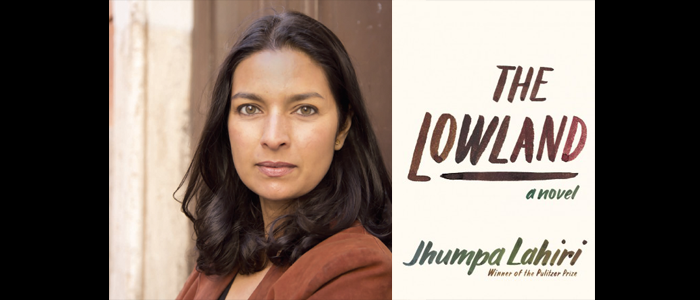If you haven’t read the five novels shortlisted for DSC Prize for South Asian Literature, here’s a brief guide we have put together. The winner of the prize will be announced at the Jaipur Literature Festival on Thursday, January 22, 2015.
Kamila Shamsie — A God In Every Stone

Shamsie’s sixth novel moves across a grand landscape, traversing time and space, examining the core of empires with questions of resistance and loyalty and forging a powerful narrative of ambition, friendship and injustice amid unfolding history.
From The Guardian’s review of A God In Every Stone:
“A novel that successfully connects and brings to life such a mass of material must be exceptionally brilliant, and possibly quite long. A God in Every Stone is an ambitious piece of work, and its pages are lit by Shamsie’s eloquent prose. Her feeling for place is sensitive and sometimes exquisite. The flowering orchards of Peshawar are as vivid as the blood hosed by firemen from the streets of Qissa Khwani Bazaar.”
Jhumpa Lahiri — The Lowland

In Lahiri’s signature style, The Lowland charts a family’s bonds across generations, and against conflict, while filtering the immigrant expression of South Asian emotions.
From The New York Times review of The Lowland:
“Throughout, Lahiri’s prose hums along as efficiently as a well-tuned engine, showing us the melancholy beauty of coastal New England; the surreal perceptions of an immigrant (so that Subhash sees in the turning leaves of fall the “vivid hues of cayenne and turmeric and ginger pounded fresh every morning”); and the tension between generations, from the sense of abandonment and vulnerability felt by Bela to the terror of parenting, with its visions of failure and foreboding, faced by Subhash and Gauri.”
Bilal Tanweer — The Scatter Here Is Too Great

Stories connect in Tanweer’s debut novel to create a portrait, fractured and hopeful, of the lives of people inside Karachi’s grim and violent reality.
From Dawn’s review of The Scatter Here Is Too Great:
“Tanweer uses a fragmented structure to explore Karachi’s terrible beauty, while always remaining alert to the teeming narratives of the city’s inhabitants. He creates a set of interconnected but freewheeling stories in which the protagonist of one crops up again as a minor character in another story, and themes or motifs overspill apparent borders in such a way as to challenge closure and the neat packaging of the short story form.”
Romesh Gunesekera — Noontide Toll

Time, its passage and the stories it leaves behind, have be to the motif for this year’s DSC Prize shortlist. Gunesekera’s book reflects upon the past of post-civil war Sri Lanka and the problems that are discovered anew.
From WSJ’s review of Noontide Toll:
“Mr. Gunesekera is an exceptionally poised and potent craftsman. Though born in Sri Lanka, he grew up in the Philippines, the son of an international development officer, and has long been resident in England. In “Noontide Toll,” he turns a sober, sophisticated outsider’s eye on his native land, where everyone is on guard after three decades of bombings, atrocities and brothers disappearing in the night. Yet he also has a local’s unillusioned awareness of what lies behind all the smiles and the gleaming new surfaces.”
Shamsur Rahman Faruqi — The Mirror of Beauty

Faruqi’s self-translated novel is as good a masterpiece as the original Urdu. With amazing aesthetic, he has captured the essence of an entire civilisation with depth and beauty.
From Livemint’s review of The Mirror of Beauty:
“Something of an epic in its expansiveness, The Mirror of Beauty defies any attempt even to enumerate its tantalizing wealth, much less to adequately discuss it in a few hundred words. It would be tantamount to attempting “to see a world in a grain of sand” or describing “eternity in an hour”. The whole way of life of 18th and 19th century India is gathered in the novel’s encyclopaedic sweep. One can literally assemble countless inventories of manners, ceremonies, festivals, fabrics, jewellery, arts and crafts, arms and weaponry, you name it.”


















